First things first: I can’t wait to recommend this piece by the always-brilliant [wink] Lindsey DeLoach Jones, about the ways motherhood is portrayed on Instagram and how that shapes cultural expectations for women’s real-life behavior. A snippet:
I see nothing wrong with viewing momfluencer feeds for entertainment, inspiration, or even aspiration. The risk, though, for me and all women who spend any time on the internet, is our tendency to transpose ourselves directly onto the images someone else is feeding us online (then noticing all the ways we don’t fit). In a role as complex as motherhood, we crave, writes Petersen, an “identity template”—another woman just showing us how to live, a thing we can duplicate at home. The problem of course, is that we can’t duplicate it. Because, wiped clean of all the mess, it isn’t (entirely) real.
I was waiting to recommend the book it’s based on (Momfluenced by Sara Petersen) until this essay went live, so see that review below.
And one more thing: I try hard not to self-promote here, but since I’m off socials for the time being, I would be soooo grateful if you shared this essay with a mom in your life. Online mags expect their contributors to “share widely” (it’s built into the contract now), and me telling my sister doesn’t exactly qualify as sharing widely.
Thank you thank you. Now let’s get to it!
Remarkably Bright Creatures, Shelby van Pelt
Here is how I was introduced to this book by about a dozen people: “It has an octopus narrator.”
I’m sorry what? An octopus? Mmmm, pass.
But then people kept. talking. about. it. And eventually I gave in and read it, and I’m going to tell you why, if you have also heard this pitch for the book (or seen the front cover), all these people are lying to you.
There are these tiny interludes throughout the book that are narrated by an octopus named Marcellus—what he sees from his aquarium tank in a tiny town near Seattle. But 90% of the story is told by a third person narrator, and it’s about human people losing one another and finding one another, and it’s a fun and easy read. In fact, I think the whole story could be told without the octopus POV and it would make almost no difference. That’s just a clever little trick the author uses that really didn’t affect me one way or the other.
So if the octopus thing is holding you back, you don’t have to worry. It’s (very) tightly plotted and neatly resolved and a great summer book.
Digital Minimalism: Choosing a Focused Life in a Noisy World, Cal Newport
Full disclosure that I read this book for research (as well as edification) purposes, because so much of the writing I’ve been doing (privately) lately has been about the reasons behind my no-smartphone experiment. You might remember Cal Newport from his 2016 book Deep Work, or the book that followed this one, A World Without Email. He thinks really well about the psychological and practical downsides of our modern-day conveniences. This book focuses on smartphones and internet usage, but it crosses a lot of disciplines to make his point.
How to Break Up with Your Phone, which I reviewed on Instagram, is a practical guide for implementing digital minimalism. But Newport’s book goes further; he spends as much time on the “why” as he does on the “how.” Which is important, of course, because no one who doesn’t buy into the why is going to give a flip about the how.
Here, he goes all the way back to Thoreau to make his case:
Thoreau asks us to treat the minutes of our life as a concrete and valuable substance—arguably the most valuable substance we possess—and to always reckon with how much of this life we trade for the various activities we allow to claim our time.
It’s giving Oliver Burkeman. It’s giving Johann Hari. It’s giving Between Two Things.
You Could Make This Place Beautiful, Maggie Smith
Whew. I devoured this book in two days.
It is a divorce memoir by the author of the viral poem “Good Bones,” and it is terribly a sad book. But it is also a deeply human book that will, as my dad would say, “stick in your craw,” whether or not you have personal experience with marriage or divorce. The moment I finished it, I opened my laptop and started writing about it, and that reflection turned into an essay about why we read sad, true stories when there is already so much sadness in the world. (I just submitted the piece, so I’ll share it with you if it is accepted.)
It's one of those books in which the quality of writing is so high that you are stunned by the beauty of the language at the same time you are stunned by the sadness of the story. It’s both things: sad and beautiful.
The passage below reminded me a little of the territory covered in Fleishman Is In Trouble, which I also highly, highly recommend to anyone over the age of 35. (Fair warning: Fleishman will mess you up a little bit.)
Incidentally, I’ve always been fascinated by the genre of women’s memoir that I call “blow-up-your-life memoir” (a la Glennon Doyle and Liz Gilbert)—wherein the solution to midlife angst is total annihilation. (I recently heard this annihilation move called “eat-pray-loving your life,” and I lol’d.) This isn’t that—it’s kind of the opposite of that, and I appreciate books that offer that flipped perspective.
In the months leading up to the train trip, I had thought a lot about what people call a “midlife crisis.” What is the crisis exactly: traveling through your life on a track, on the force of your own momentum, the landscape only a blur? And what is the remedy? To get off the train, to swear off trains entirely, to say, “What train?”
Momfluenced, Sara Petersen
If you read my essay above, you know I loved this book, which I pre-ordered before its release because that is a crucial thing you should do for authors you love. I have read
’s Substack for a long time, so I knew the book would be a funny, incisive reflection on the pressures of modern-day motherhood—but I didn’t know just how densely packed it would be with supporting research and contextualization within the larger realms of psychology, sociology, and politics. I also knew I’d want to write about it, and I took about 15 pages of notes when I was reading, 95% of which never made it into my essay. Like I said: it covers a lot.Essentially the book is about how, these days, so many women online are “performing motherhood” for likes (and dollars), and then we regular moms are subconsciously performing motherhood IRL just to keep up. It traces the way mothering has become interwoven with one’s consumer habits (we buy the juice press the “momfluencer” tells us to buy) and how momfluencers quietly shape even women’s political and religious ideologies.
If you follow me on Instagram, you know I have made a hobby out of imagining the invisible labor that goes into getting that perfectly staged Insta shot (like a mother artfully sprinkling flour on her kitchen countertop just before she poses with her beatific child in a monogrammed mini-apron). Petersen pulls back the curtain on all that in a much more exhaustive, precise way.
And it’s important to note my takeaway, which is this: You do you. Artfully sprinkle the flour and take your shot.
Just maybe show some of the other stuff too, like the aftermath of having your child perform muffin baking for three hours so you can take her photo doing it. (The aftermath, I absolutely swear to you, involves tears.)
Ryan Seacrest is the new host of Wheel of Fortune. Did you know I was a contestant on Wheel of Fortune in 2008?
Here’s an argument for letting your kids get bored this summer. It is particularly important for me to remind myself of the virtues of boredom as I type this and my kids aimlessly roam the house.
Sidenote: Whenever anyone in my family said we were bored, my dad said “Go pour sand in your head and pick it out.”
Another sidenote: A friend mentioned this poem to me this week, and I told her that every time my kids say they are bored, I say, “Ever to confess you’re bored means you have no Inner Resources.”
Here’s a brilliant take on what the dystopic novel The Road says about parenting. The legendary author Cormac McCarthy died two weeks ago.
When all of the accoutrements are stripped away, what does it mean to care for a child?
There are really only two things that a parent, under circumstances of extreme duress, can possibly be thinking about: being loving and being brave.
Platonic (Apple TV)
It’s funny. It’s tender. It’s kind of like Shrinking. It’s exactly what you want to watch at the end of the day.
I’ll leave you with this.
You don’t need to know who you are to become an artist. Art moulds us into the shape it wants us to be and the thing that serves it best. As a songwriter, I have come to understand that the more I try to make art that somehow reflects what I perceive myself to be, or the identity I wish to project upon the world, the more my art resists. Art doesn’t like being told what to do. It doesn’t like me getting in the way. When I attempt to impose my will upon it, the work becomes diminished and art takes its better ideas elsewhere.
Art is a divine and mysterious force that runs through all of us. It is a thing of supreme spiritual potential that only comes into its true and full being if we abandon all those cherished ideas about who we think we are or are not. Art is entirely indifferent to our self-annihilating excuses, special case pleas and circumstantial grievances. We must cease to concern ourselves with our unique suffering – whether we are happy or sad, fortunate or unfortunate, good or bad – and give up our neurotic and debilitating journeys of self-discovery. Art of true value requires, like a jealous and possessive god, nothing less than our complete obedience. It insists that we retract our ego, our sense of self, the cosmetics of identity and let it do its thing. We are in service to art, not the other way around.
—Nick Cave
Spoiler alert: I was robbed.


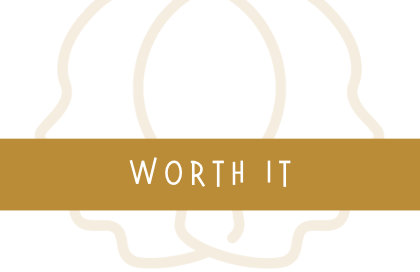



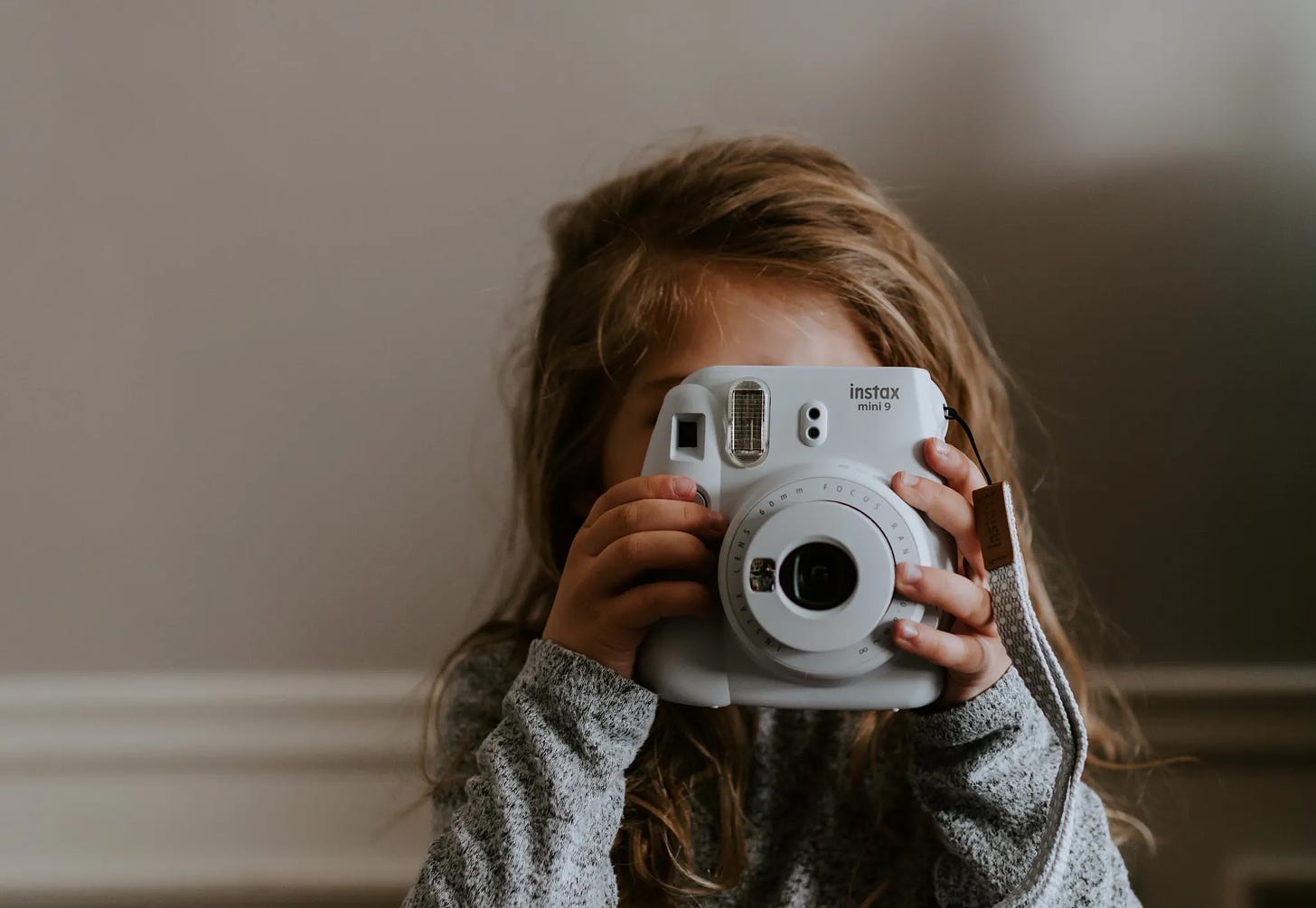

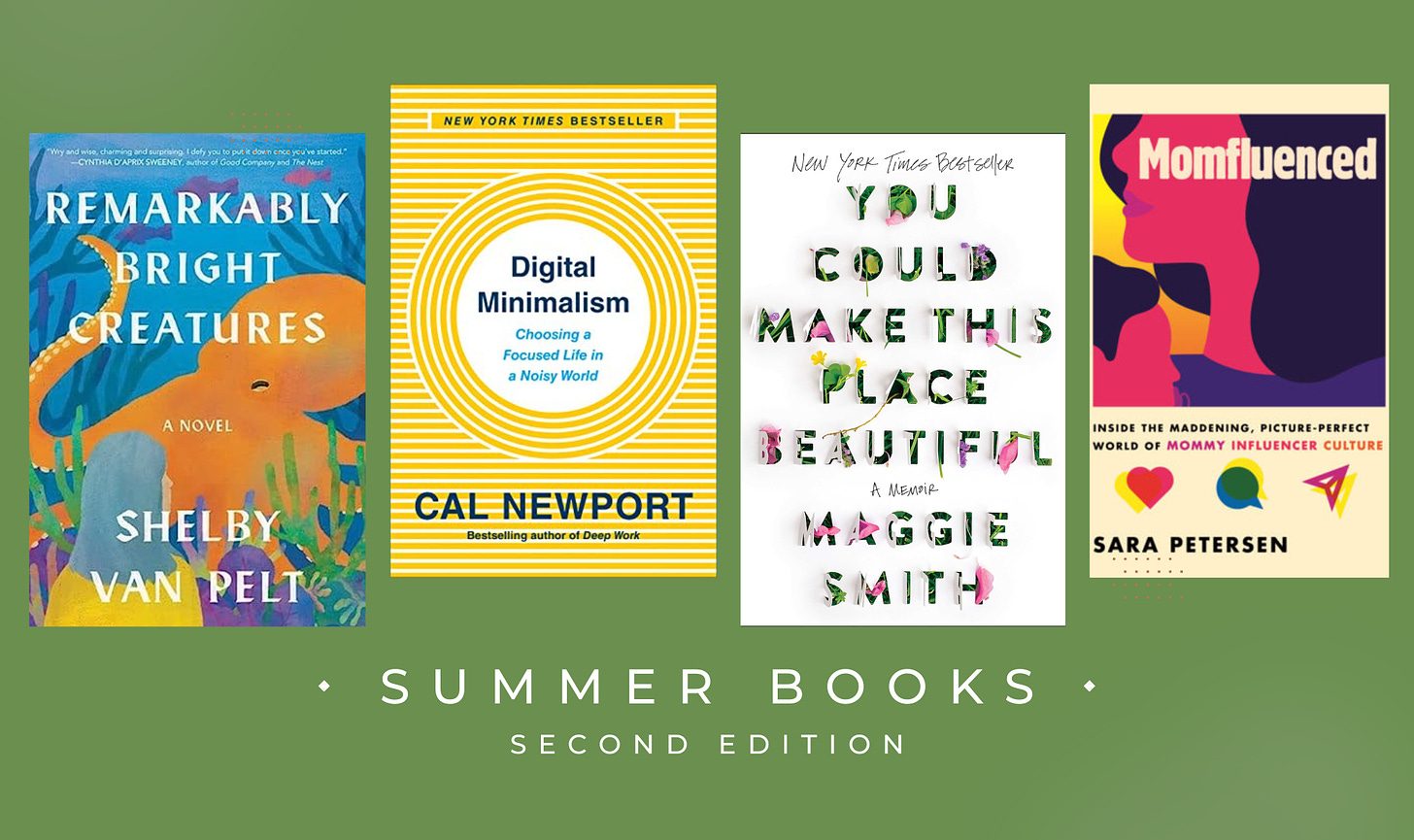

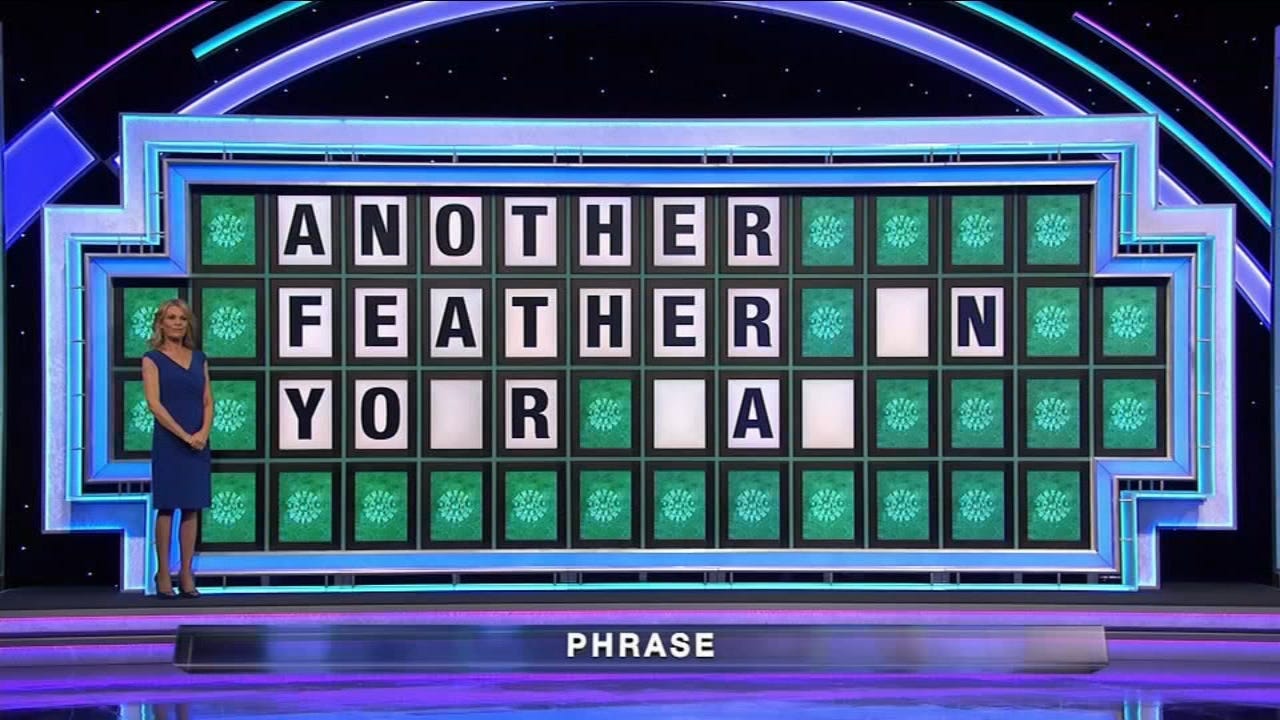
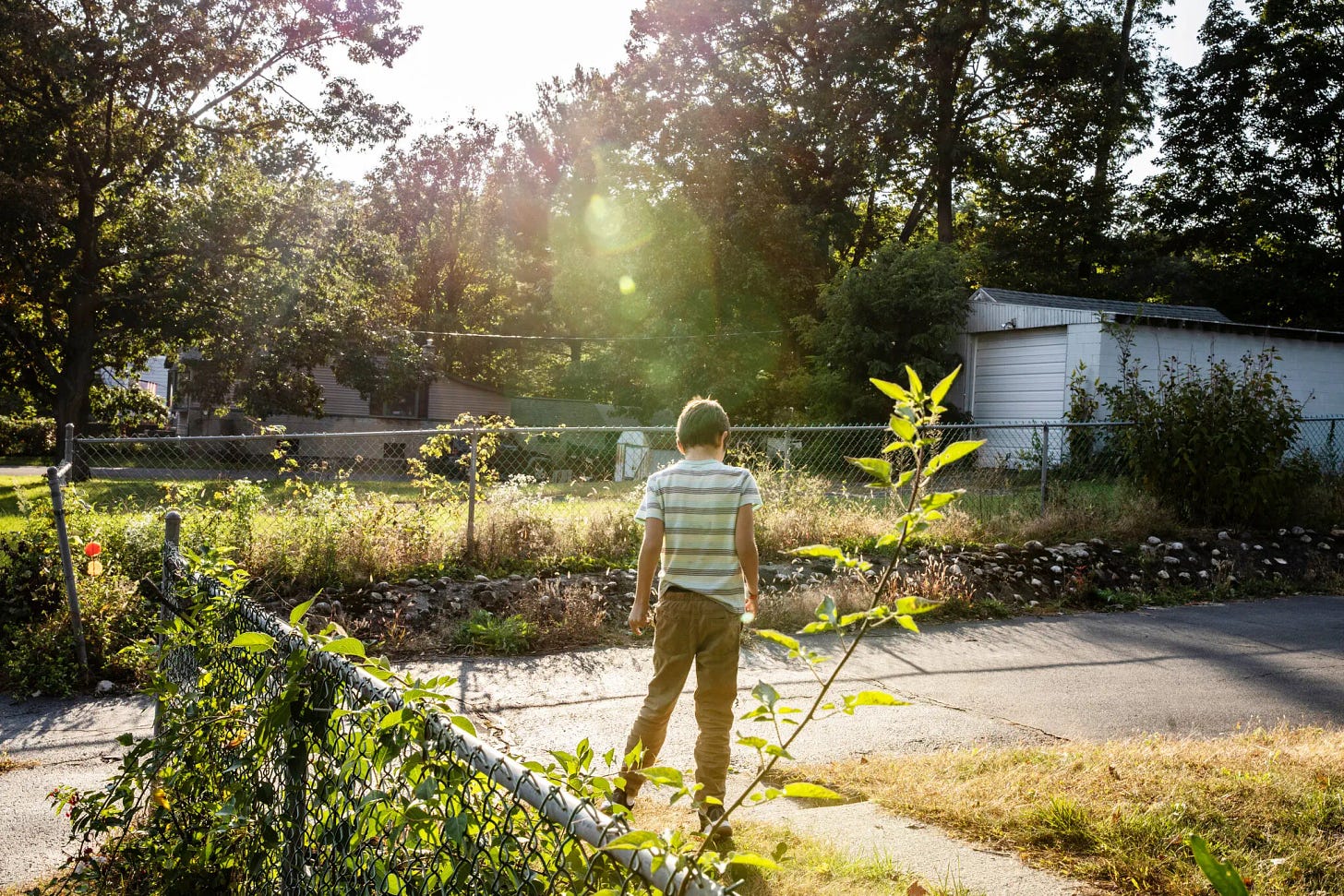


I recently read Deep Work and have Digital Minimalism out from the library (she says, while typing this comment on her phone while “on break” from revising an essay she needs to send to her writing group by the end of the day.) Also read Four Thousand Weeks -- twice on audiobook. I was wondering if you’d read these given your recent experiment. But is it helping, the experiment? I’ll be interested in your long-term reflections on it.
I'm reading "How to Stay Married" by Harrison Scott Key, a memoir about not divorcing after his wife told him she wanted a divorce and I have "Really Good, Actually" and the Maggie Smith book in my queue. (I don't remember if I finished Fleishman. Agreed; it will mess you up.) So, surrounded by divorce in my reading! Good times!